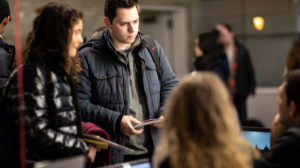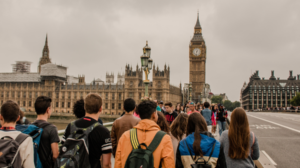Global Learning
Global and Intercultural Communications: Digital Badge Enrolling Now!
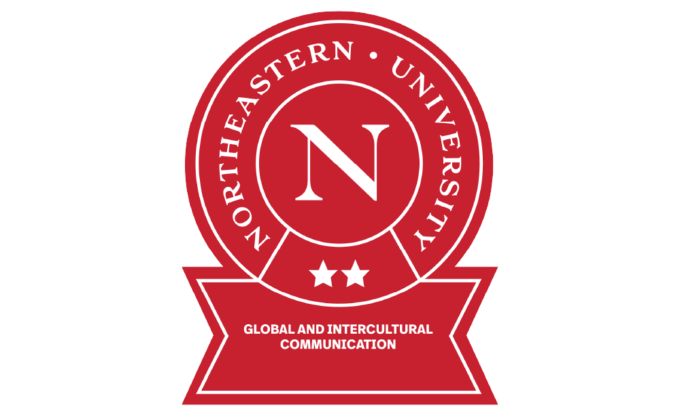
Spring 24 Dates: January 23 – March 29, 2024
- Learn Global and Intercultural Communication skills while earning your way to GEO’s first Digital Badge
- Enhance your resume by connecting your badge to your LinkedIn Profile or Digital Resume
- Completion of this module earns learners a Northeastern University Digital Badge in Global and Intercultural Communication, in partnership with Credly.
- Online Non-Credit Module (Self-Paced with Synchronous Components and Team Based Projects)
- Lead Instructor/Coach: Bryan McAllister-Grande, Ed.D.
What is intercultural and global communication? What does it mean to be a “global citizen”? This module focuses on the latest theories of global and intercultural communication. The module begins by defining terms such as culture, globalization, and migration, and then supports learners as they critically analyze and apply these ideas in personal reflection and team-based problem-solving, connecting issues learners may encounter in contexts with broader dynamics of globalization, migration, positionality, power, and privilege. Learners will be expected to complete two immersive projects and a self-assessment tool, and will receive both coaching and written assessments.
Northeastern University’s Global Experience Office is offering this module in partnership with Skillstack. It is a non-credit educational module. Northeastern University is not awarding credit for this program and no university transcript will be provided. Learners who complete the module will instead earn a Digital Badge in Global and Intercultural Communication (Level 2: Intermediate) through Credly, which can be imported into LinkedIn profiles and digital resumes.
The badge is asynchronous and is divided into content that should be completed each week, over the course of 10 weeks. Facilitators will help you move along in the content, answer questions, and provide feedback and coaching.
The module is open to all learners at all levels. Although designed at the intermediate level, the module can be customized to include some advanced content.
Defining
Global Learning
- An approach to higher education and a set of intellectual orientations.
- Incorporates the international/transnational, the intercultural, and the local.
- Combines systems thinking with comparative perspectives and multidisciplinary problem-solving.
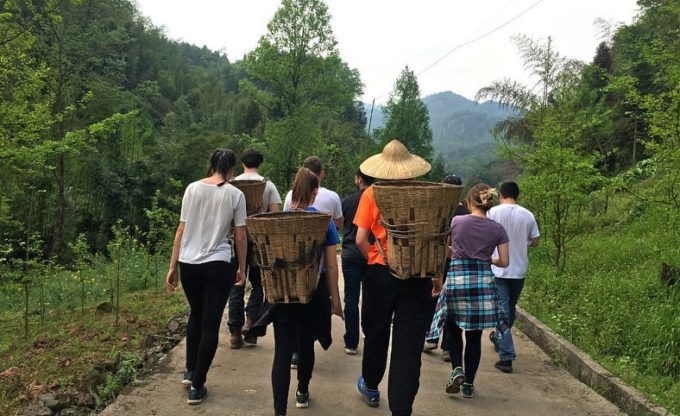
Our Global & Intercultural Learning Goals
Global experiences are transformative. It is our goal that students who participate in global programs will be able to:
- Recognize and critically examine their own cultural influences.
- Analyze the connection between the global and the local, and understand how structures, forces, and phenomena shape culture and individual experience.
- Live, learn, and work effectively with people whose backgrounds, experiences, and perspectives are different from their own.
- Reflect and act with an understanding of the local and global impacts of their decision.
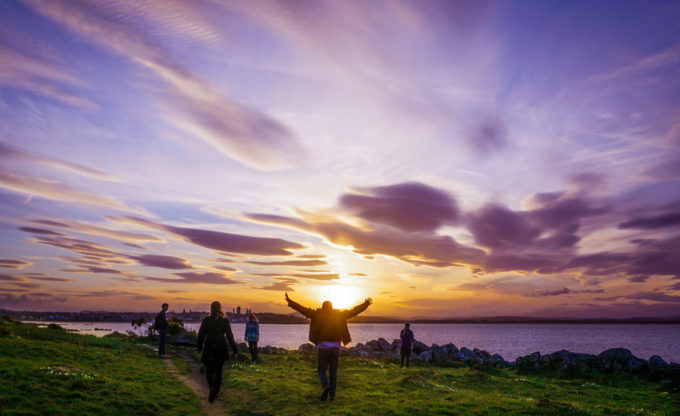
Why Participate in a Global Experience?
Integrating with Northeastern’s Learning Frameworks
The Global Experience Office aims to give you global experiences that integrate seamlessly within the Northeastern learning framework.
Fulfill your NUpath requirements while going global.
NUpath is built around essential, broad-based knowledge and skills integrated with specific content areas and disciplines.
Many of the NUpath attributes contribute to the development of skills that help you become a global citizen. Most commonly, global experiences are associated with:
- Interpreting Culture (IC)
- Understanding Societies and Institutions (SI)
- Engaging Differences and Diversity (DD)
Self-Authored Integrated Learning (SAIL) is a new approach to education that focuses on extracting meaning not just from courses or co-ops, but from every experience. This mindset uniquely prepares students and all members of the Northeastern community as adaptable lifelong learners, leveraging every experience for growth and success.
Campus Workshops and Learning Opportunities
The Global Experience Office supports faculty and co-curricular educators in designing programs that allow students to develop mindsets and practices to build their intercultural competence.
Students
The Global Experience Office continually works to develop new programming to enhance the study abroad experience for students.
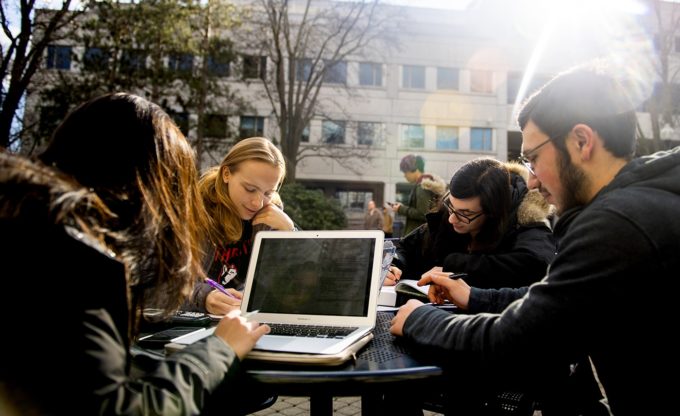
Faculty & Staff
The Global Experience Office supports faculty and co-curricular educators in designing programs that allow students to develop mindsets and practices to build their intercultural competence.
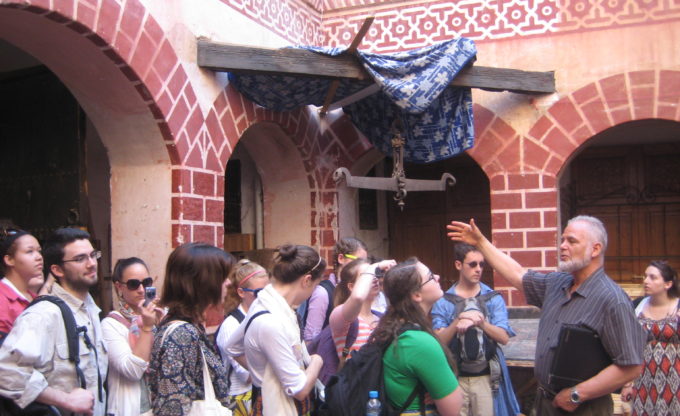
Staff Research & More
The entire Global Experience staff is committed to research, collaboration with partners, and continuing to learn and educate the field about intercultural competencies.
The Global Experience Office houses multiple committees committed to advancing the accessibility of global experiences to students of all backgrounds, and helping students navigate their experiences abroad.
The Advancement Committee
The Advancement Committee’s mission is to secure and distribute funding to students with demonstrated financial need and who have never participated in a global experience. Through partnerships with University Advancement, Alumni Relations, and Global Experience networks and marketing functions, this committee aims to:
- Expand opportunities and awareness to students who wouldn’t otherwise have access to global experiences
- Advance Northeastern University’s goal of giving 100% of students a global experience as undergraduates
This committee is responsible for establishing the First-Time Traveler Grant, which provides funds to students with financial need to participate in their first Global Experience program within the NU Network and beyond.
The Global Experience Office (GEO) Diversity, Equity, and Inclusion Committee
The GEO DEI Committee has a mission of:
- Accessibility/Inclusivity: To make Northeastern global experiences accessible and inclusive to all students at Northeastern, with a focus on students from underrepresented and under-served backgrounds from diverse identities.
- Action: To intentionally and proactively create campus partnerships, collaborations, and programming to best serve our underrepresented and under-served students.
- Assessment: To properly assess our efforts to identify successes and areas for improvement and to provide a holistic view of what the committee does for the Global Experience Office and Northeastern as a whole.
Some recent, notable events and collaborations are:
- My Global Identity Pre-Departure Series (annual) – a series to help students from minoritized identities navigate their experiences abroad
- Inclusive Global Learning Series: Decolonizing Global Learning and Addressing Equity, Inclusion, and Ethical Community Engagement (Fall 2020) – a series in collaboration with CATLR for faculty to build on global learning development
- Intercultural Development for GEO Staff (Summer 2020) – a short series focused on global and intercultural learning, and DEI gaps in intercultural framework
- Facilitating Intercultural Learning on DOCs – ongoing faculty training with a partial focus on systematic racism in cohorts and curriculum
- Ongoing collaboration with Northeastern’s division of Cultural & Spiritual Life
- Ongoing participation in the Northeastern Diversity & Inclusion Network
- Ongoing collaboration with Northeastern FUNL (First-Gen, Undocumented, Low-Income) population, including FUNL-week programming with the Center for Intercultural Engagement (CIE) each year.
- Ongoing collaboration with Northeastern Advancement to generate new funding opportunities for underrepresented students.
Faculty Advisory Board
The Faculty Advisory Board is charged with making recommendations and examining policy for Northeastern’s global experiences. The Advisory Board advances GEO’s mission by improving or streamlining policies, examining new opportunities for growth, and opening up pathways for learner participation. The Advisory Board is chaired by Chris Gallagher, Vice Chancellor for Global Learning Opportunities.
The Learning and Assessment Committee
The Learning and Assessment Committee is charged with creating, refining, and advancing GEO’s Global and Intercultural Learning Goals. This joint faculty/staff committee drafted GEO’s learning goals and is developing a rubric and assessment plan. The Committee also works with the Office of the Provost and University Decision Support to assess the impact and value of global learning.
The Northeastern Global Experience Office has a team dedicated to continuing to pursue global learning. As leaders in the field, they enrich abroad academic integration with their research and studies.
Benjamin Floman, Associate Director of Academic Administration and Assessment
Teaching and Research Expertise:
- International Higher Education
- TESOL
- Intercultural Communications
- Cultural Economic Development
Molly Giblin, Ph.D., Associate Director of Academic Integration and Global Learning
Areas of Research:
- Intercultural and Global Learning
- Teaching and Learning
- Global History
Publications:
- Giblin, M. (2020). Going Digital: Transforming Faculty-Led Study Abroad at Northeastern. IIE Networker (September 2020).
- Giblin, M.J. (2020). The Emperor’s Old Clothes: Chinese Objects and the Renaissance of French Imperialism. French Colonial History 19, 79-109.
Bryan McAllister-Grande, Ed.D., Director of Academic Integration and Planning
Areas of Research:
- Internationalization of Higher Education
- International Higher Education
- International Higher Education Research
- Intercultural and Global Learning
- History of Higher Education
Publications:
- McAllister-Grande, B. & Whatley, M. (2020). International Higher Education Research: The State of the Field. NAFSA: Association of International Educators.
- Whatley, M. & McAllister-Grande, B. (2020). International Education and the Common Good: An Appraisal of the First Ten Years of the Global Studies Literature Review. Global Studies Literature Review 10, January 2020.
- McAllister-Grande, B. (2019). Golden Ages on the Horizon. International Educator. NAFSA: Association of International Educators, September/October 2019.
- McAllister-Grande, B. (2019). Golden Ages on the Horizon: International Higher Education and the Knowledge Revolution. Trends and Insights. NAFSA: Association of International Educators, July 2019.
- McAllister-Grande, B. (2018). Toward Humanistic Internationalization: Does the Current Western Theory of Internationalization Have Protestant Capitalist Roots?. The Future Agenda of Internationalization in Higher Education: Next Generation Insights into Research, Policy, and Practice. Eds. Douglas Proctor and Laura E. Rumbley. Abingdon: Routledge.
- McAllister-Grande, B. (2018). Changing the Foundations of International Education: Fixing a Broken System and Working for Social Justice. The Global Impact Exchange. Diversity Abroad, Winter 2018.
On-Going Research & Scholarship
- Inclusive global learning and internationalization
- (In Progress) Hunter, F., McAllister-Grande, B., Proctor, D., & De Wit, H. The Evolving Definitions of Internationalization: The Question of Values. The SAGE Handbook of International Higher Education (2nd Edition). Forthcoming, SAGE, 2021.
- Theory and practice of international education
- (In Progress) McAllister-Grande, B. International Education as Grand Sociology: An Exploration of Josef Mestenhauser’s View of the Field. Mestenhauser and the Possibilities of International Education: Illuminating Pathways for Inquiry and Future Practice. Eds. Anne M. D’Angelo, Mary Katherine O’Brien, and Gayla Marty. Forthcoming, 2021.
- The historical and global dimensions of the university
- (In press) McAllister-Grande, B. The Beginning of History and the University. Chapter for the International Association of Universities 70th Anniversary Book. Forthcoming.
Assessment Efforts
The Global Experience Office has launched a multiyear, multiphase learning assessment initiative. The initiative includes phases for:
- Construct and Learning Goal formation
- Analysis of assessment instruments needed
- Data collection
- Data analysis
If you would like to be a part of this initiative please contact our Academic Integration & Planning Team.

